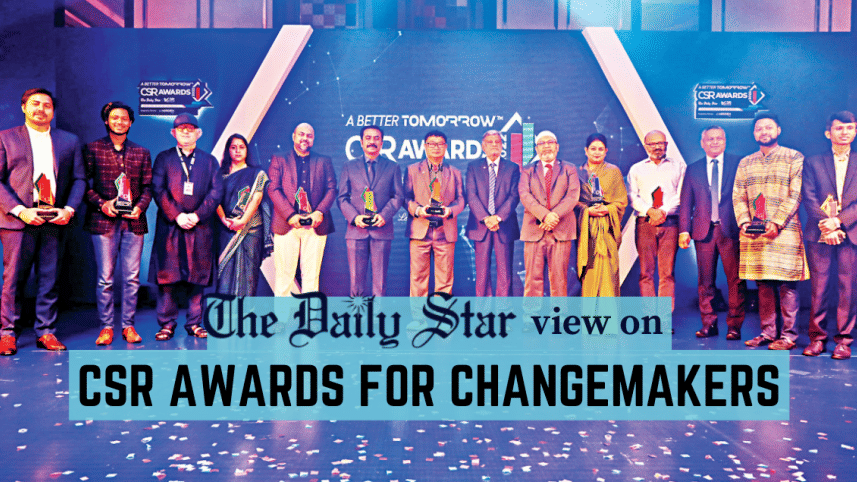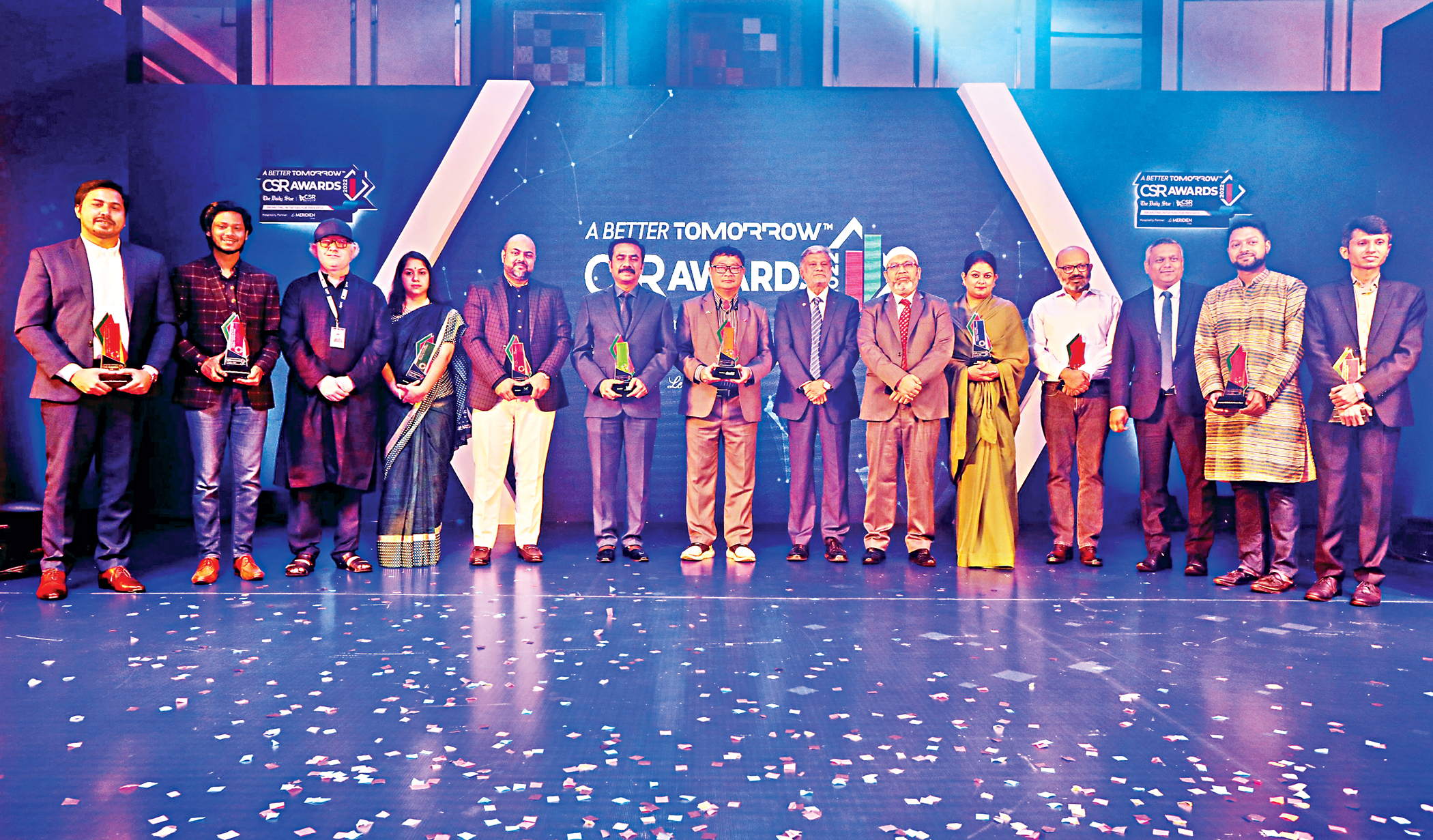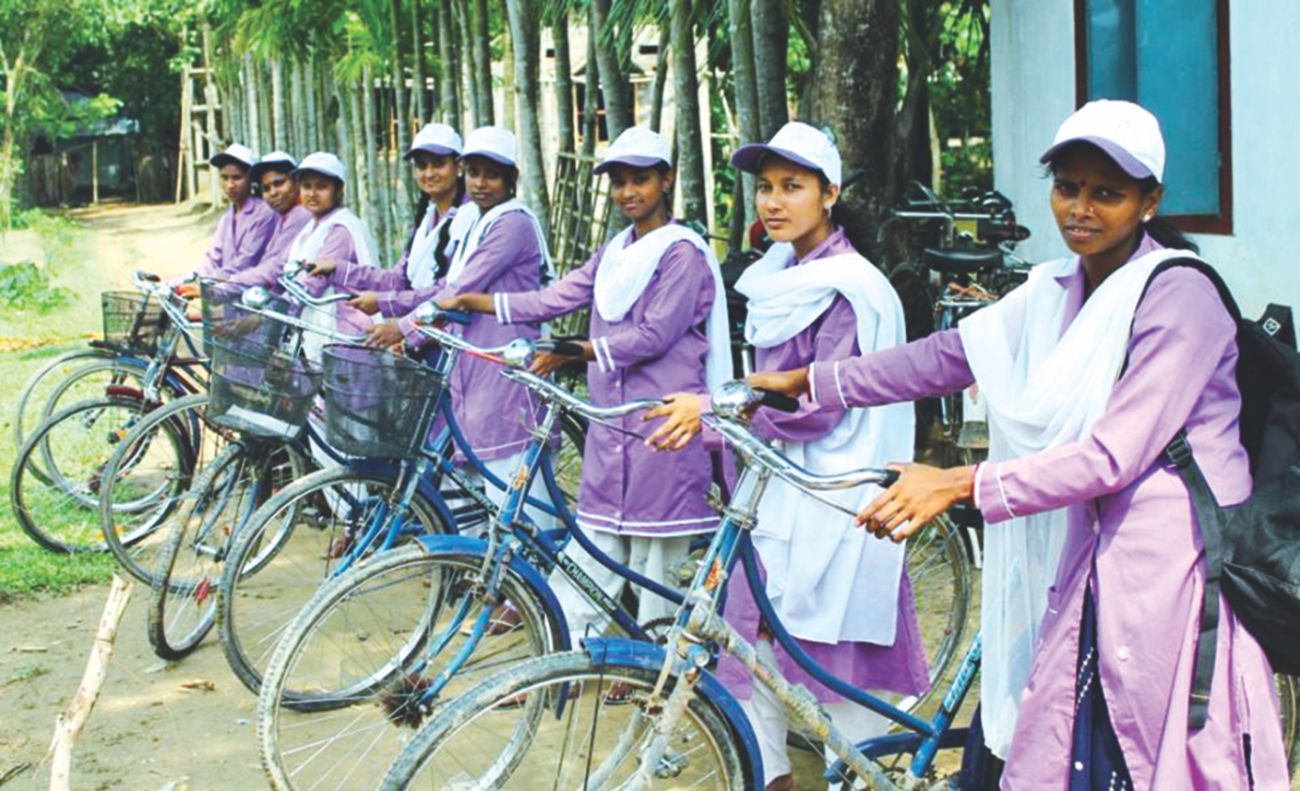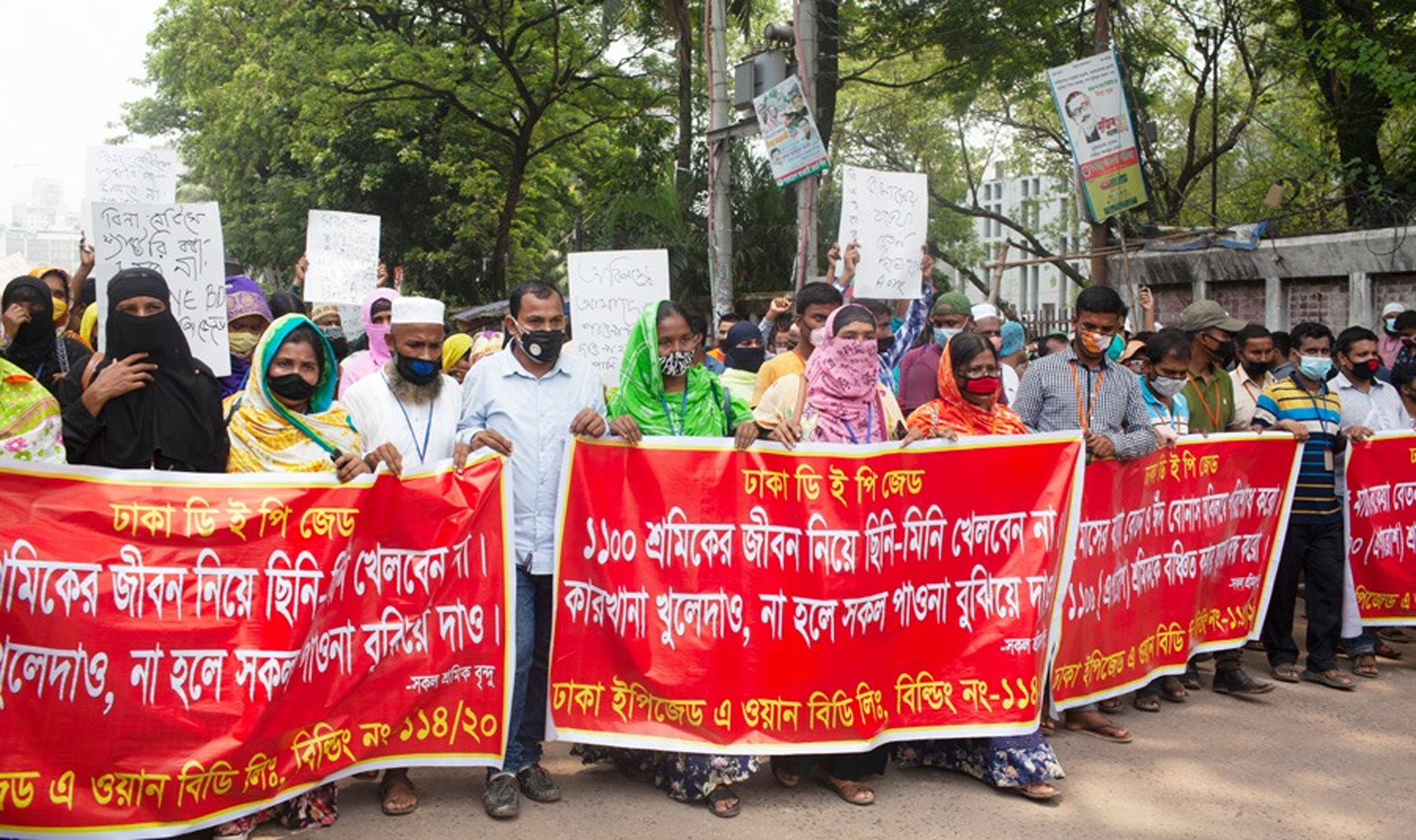We need socially responsible corporates

The idea of corporate social responsibility (CSR) has been gaining popularity in the business world for the last few decades. It has evolved from being a mere PR exercise, or a means of getting tax benefits, into a strong social agenda. The Daily Star CSR Awards this year has shown how corporate entities are developing a clearer understanding of what the community needs and designing projects to meet them.
Four companies, a bank, a mobile financial service provider and five remarkable individuals have won this year's awards. Together, they give an idea of the innovative spirit of altruism.
A fully-funded medical centre built in 2001 by LafargeHolcim for marginalised communities of Chaatak won the award in the healthcare category. In the education segment, bKash was selected for an initiative that distributed over 2.6 million books among schoolchildren and included reading programmes with Bishwo Shahitto Kendro. Best CSR in environment was taken by HSBC for planting around 42,500 mangrove trees and conducting awareness programmes to combat the effects of climate change. Coca-Cola Bangladesh won an award in the financial inclusion category with its support to people during the pandemic, including vaccination for day labourers and relief supplies to around 3 lakh people.
The most special aspect of the CSR Awards was the recognition of individual endeavours through the "Young Humanitarian of the Year Award". Of them, Adnan Hossain's Humanity Foundation provides free quality education to over 2000 students along with free meals, medical camps and skills training to marginalised communities. Shekh Mohammed Moinul Islam's Human Aid Bangladesh Foundation has provided free medical treatment to over 8 lakh people and over 2 lakh free Covid screenings. Shanjidul Alam's EcoVation has trained over 3,500 volunteers to develop technologies that help communities, and has set up solar-powered water systems in remote areas. Azwa Nayeem's Alokito Hridoy Foundation has already trained over 15,000 teachers in rural and low-income areas in modern teaching methods, while Md Sahariar Hasan Jiisun's Bloodman connects blood donors to patients and has already helped more than 5 lakh people find donors by partnering with Facebook and Meta.
It goes without saying that the private sector has been the main driving force in boosting the economy and keeping it afloat. The government, meanwhile, is responsible for providing basic services of healthcare, education and skills training. With a huge population such as ours – the majority of whom are struggling to survive amid endemic corruption in almost all public services as well as the punishing financial crisis caused by the pandemic and Russia-Ukraine war – basic needs such as food, healthcare, and education are becoming even more inaccessible to the vulnerable sections of society. This is where the corporate world can step in. It can make a difference through projects that are innovative, practical and serve marginalised communities in the long term.



 For all latest news, follow The Daily Star's Google News channel.
For all latest news, follow The Daily Star's Google News channel. 


Comments